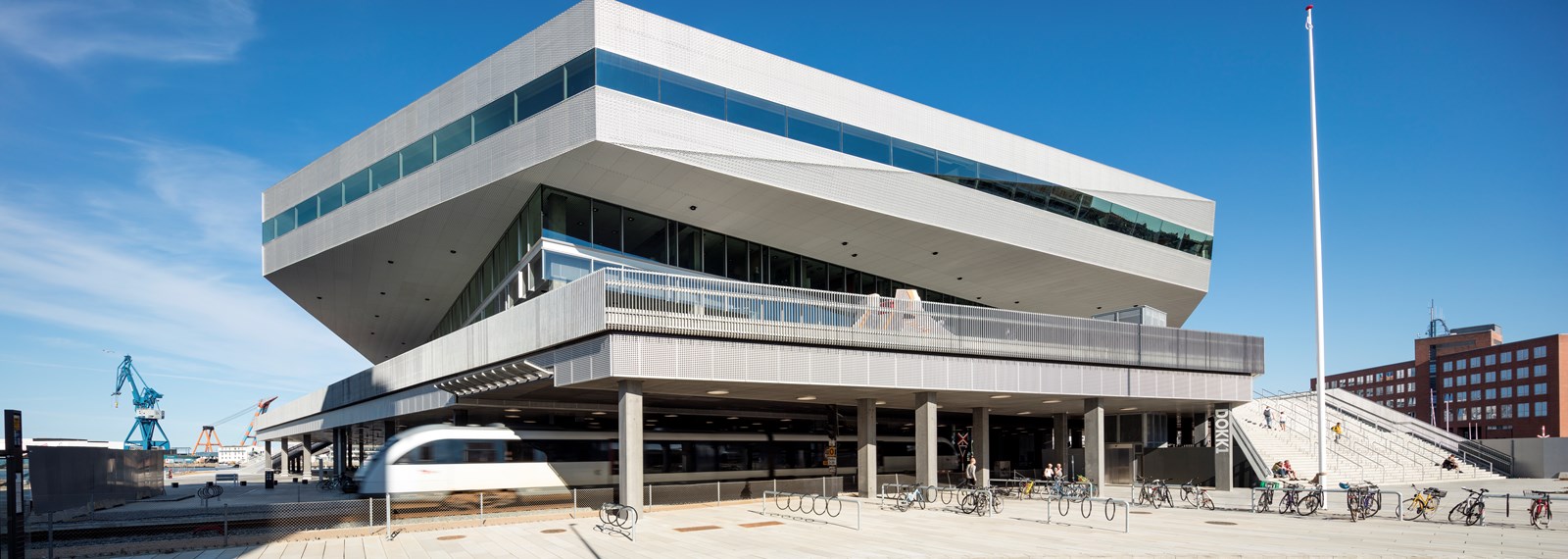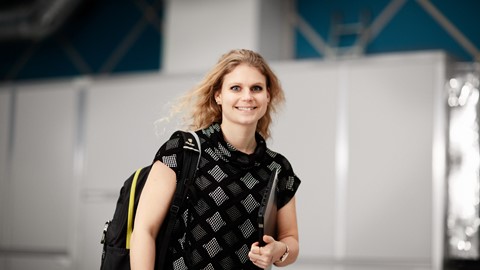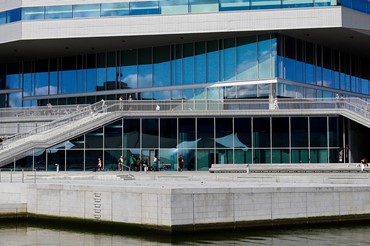
Fra DOKK1 kan gæster spejde ud over Aarhus i alle retninger. Over havet, den fritlagte å, midtbyen med domkirken og byens nye havnepromenade. Foto: Aarhus Public Libraries
Operationalisation of the UN’s Sustainable Development Goals in absolute sustainability assessments of the building industry in Denmark
This Ph.D. considers absolute sustainability. It aims at answering when a building is good enough both considering social- and environmental sustainability across the life cycle. By translating the United Nations’ Sustainable Development Goals (SDGs) into a Danish building context, and creating a design tool with sub-goals, indicators and targets, it operationalizes the social aspects of sustainability while acknowledging the planetary limits.

Project start: June 2020
Project ending: June 2023
BU/department/ industry to which the project is associated: Building
Cooperation-partners: DTU, Innovations fonden
The historical consumption to fulfil the demands of the growing population have resulted in the climate- and biodiversity crisis we face today. Therefore, understanding and measuring the fulfilment of human needs and the social aspect of sustainability is crucial in the process of green transition.
Buildings have a significant potential to reduce emissions and deliver a positive social impact, since they cause 33% of GHG emissions and we spend 90% of our time in buildings. By coupling the SDGs with the planetary boundaries, this project allows companies to apply “SDG”-thinking and absolute sustainable targets in projects while creating a method for other industries to follow.
More about the project
Project status: Active
5 main keywords about the project: SDGs, Social sustainability, one planet design, Absolute environmental sustainability assessment, sustainable buildings
Educational background: BSc and MSc Architectural Engineering from DTU
Hopes for the future works of the project: I hope that the method and SDG measure 2.0 will be used by many client for both renovation project and new buildings. Hopefully, someday it can compete with the DGNB certification system. Furthermore, I which to develop similar SDG design tools for other industries.
The importance of cooperating with NIRAS: NIRAS has provided this ph.d. project with a large number of internal expects who have contributed with their expertise on the different aspects of sustainable buildings e.g. indoor climate, reuse of materials, energy, universal design etc. Furthermore, NIRAS has provided case studies for testing.


